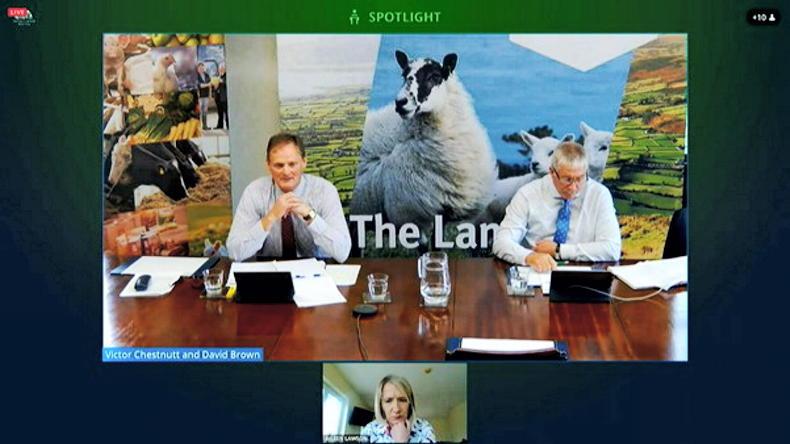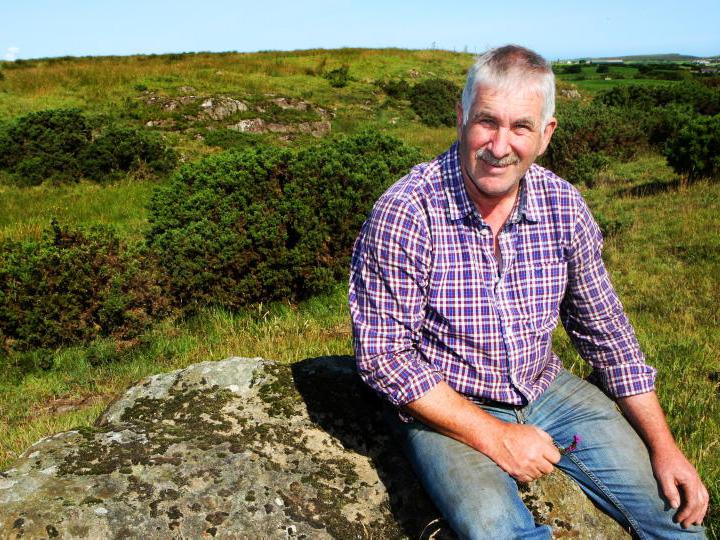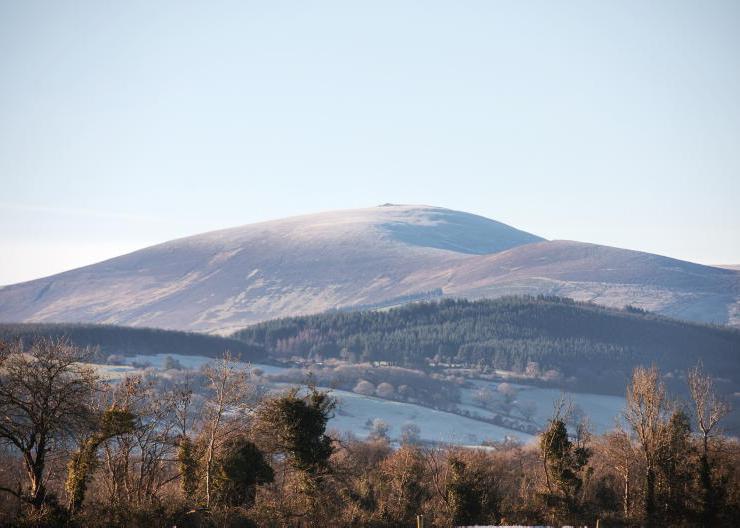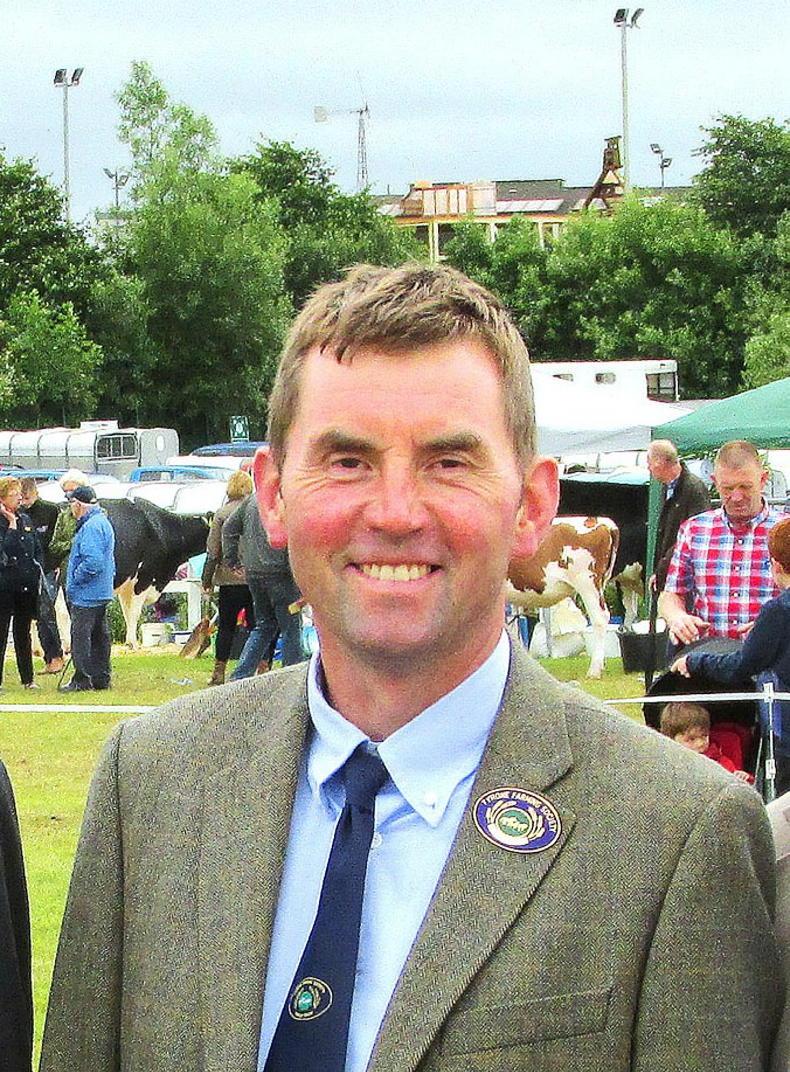Despite being accused of scaremongering, and criticised for suggesting that proposed climate change legislation would decimate NI farming, UFU president Victor Chestnutt refused to back down when he met the Stormont agriculture committee last Thursday.
In a blunt exchange of views, the deputy chair of the committee, north Antrim MLA Philip McGuigan, put it to Chestnutt that the private member’s bill, supported by the main political parties outside of the DUP, did not contain any specific targets for agriculture.
“I can’t let this go – your target is set – net zero for 2045. The whole rural landscape would be devastated. I don’t back down from saying that – that is what will happen” responded Chestnutt.
The initial findings from KPMG suggest that NI livestock would have to be cut by 85%
The UFU president is basing his analysis on work by accountancy firm, KPMG, who have been asked to produce an impact assessment on the private member’s bill currently being considered by the committee.
The initial findings from KPMG suggest that NI livestock would have to be cut by 85% to help meet a target for NI to have net zero emissions by 2045.
A separate DAERA climate change bill, which includes a 2050 target for NI to cut emissions by 82% when compared to 1990 levels (as part of NI’s contribution to a UK net zero target), has also been introduced to the Assembly.
The advice from senior DAERA officials, and also from experts on the UK Climate Change Committee (CCC), is that this provides the only realistic pathway for NI.
However, to date, a cohort of MLAs on the committee seem intent on sticking with the net zero target.
“If the proposers of that Bill have not listened to DAERA advice, it does not give us confidence going forward,” pointed out UFU deputy president David Brown.
“We have tried to look for light at the end of the 2045 tunnel, but what we see is a train coming down the line. For the sake of farming families, we urge you to listen, and do the right thing,” added senior UFU policy officer Aileen Lawson.
Support DAERA bill
During the evidence session the UFU representatives said that they supported the DAERA climate change bill, and the need for specific legislation. They argued that given NI has among the lowest emissions per unit of output in Europe it would make no sense to cut beef, sheep and dairy production here, and end up importing food from other countries with a higher carbon footprint.

David Brown, Victor Chestnutt and Aileen Lawson from the Ulster Farmers' Union spoke to MLAs on Stormont's agriculture committee on Thursday.
They were also critical of the “uninformed ideas” of some of the bill sponsors who talk about increased production and intensity within NI agriculture, when in fact cattle and sheep numbers are lower now than in 1990.
Over 90% of agricultural emissions come from ruminants by biology, so those are the sectors that will be hardest hit
While there has been some expansion in pig and poultry numbers in recent years, these sectors are not big contributors to carbon emissions from agriculture. Instead, it is methane from ruminants that account for around 65% of all agriculture emissions.
“The impact [of a net zero target] will be concentrated on our ruminant industry – our beef, our milk, our sheep. Over 90% of agricultural emissions come from ruminants by biology, so those are the sectors that will be hardest hit,” said Aileen Lawson.
Treated differently
However, given that methane breaks down in the atmosphere after 10 to 12 years, there is an argument that it should be treated differently to carbon dioxide emitted from fossil fuels which remains in the atmosphere for centuries. As a result, the UFU urged MLAs to take evidence on the issue from scientific experts, including from Oxford University.
Allowance
The other main point made related to how agricultural emissions are assessed, with no allowance in the agriculture figure for carbon sequestered in the likes of hedges or grassland. Instead, it is included as part of an inventory for land use, and land use change.
The IFA are on the streets
“On my own farm, I have planted about five miles of hedges. The sequestration of carbon in those hedges should be used to offset the emissions from my livestock. They are not for sending my neighbour or my local MLA on two foreign holidays per year,” said Chestnutt.
He also did not rule out the possibility of farmer protests against the private member’s bill, pointing out that the UFU has 11,500 paid up members, not just a few names on a page.
“The IFA are on the streets – our farmers will not be found wanting in getting the public’s attention – we will not be scapegoats for society. Net zero by 2045 is complete nonsense,” he concluded.
2050 net zero
target not enough
claims academic
The current UK and EU target for net zero emissions by 2050 is insufficient to avert dangerous climate change and will have to be brought forward soon, a University College Dublin (UCD) academic told MLAs on the Stormont Agriculture committee last Thursday.
In his evidence, Dr Andrew Jackson, a specialist in environmental law, claimed that NI has among the highest carbon emissions per capita in the world so needs to do “much more than the global average in terms of its fair share contribution”.
Jackson talked about the need for immediate “transformative change” and “deep reductions” in emissions. He described the 82% reduction target for NI set by the UK Climate Change Committee (CCC) as something “deemed politically feasible rather than what is scientifically or technically achievable.”
Technology
His main argument centres around his belief that technology to remove carbon from the atmosphere is still in the development phase.
That technology relies on either removing carbon direct from the atmosphere, or growing biomass (trees, willow etc) which captures carbon.
This biomass is then burned in power plants, with equipment in place to capture the carbon released in the combustion process. In both cases the captured carbon is put into long-term storage in porous rock layers underground.
Describing the technology as “highly speculative”, he alleged that the UK’s target to get to net zero by 2050 is predicated on massive negative emissions via carbon capture and storage, for which there is no plan.
Even if the technology is proven to work, Jackson pointed out that it will require huge quantities of land given over to biomass production.
“Where is the planning for that to happen? Where are these enormous forests going to be planted?” he asked.
Read more
UK strategy on trade defies logic
NI net zero target means 85% livestock cut
Despite being accused of scaremongering, and criticised for suggesting that proposed climate change legislation would decimate NI farming, UFU president Victor Chestnutt refused to back down when he met the Stormont agriculture committee last Thursday.
In a blunt exchange of views, the deputy chair of the committee, north Antrim MLA Philip McGuigan, put it to Chestnutt that the private member’s bill, supported by the main political parties outside of the DUP, did not contain any specific targets for agriculture.
“I can’t let this go – your target is set – net zero for 2045. The whole rural landscape would be devastated. I don’t back down from saying that – that is what will happen” responded Chestnutt.
The initial findings from KPMG suggest that NI livestock would have to be cut by 85%
The UFU president is basing his analysis on work by accountancy firm, KPMG, who have been asked to produce an impact assessment on the private member’s bill currently being considered by the committee.
The initial findings from KPMG suggest that NI livestock would have to be cut by 85% to help meet a target for NI to have net zero emissions by 2045.
A separate DAERA climate change bill, which includes a 2050 target for NI to cut emissions by 82% when compared to 1990 levels (as part of NI’s contribution to a UK net zero target), has also been introduced to the Assembly.
The advice from senior DAERA officials, and also from experts on the UK Climate Change Committee (CCC), is that this provides the only realistic pathway for NI.
However, to date, a cohort of MLAs on the committee seem intent on sticking with the net zero target.
“If the proposers of that Bill have not listened to DAERA advice, it does not give us confidence going forward,” pointed out UFU deputy president David Brown.
“We have tried to look for light at the end of the 2045 tunnel, but what we see is a train coming down the line. For the sake of farming families, we urge you to listen, and do the right thing,” added senior UFU policy officer Aileen Lawson.
Support DAERA bill
During the evidence session the UFU representatives said that they supported the DAERA climate change bill, and the need for specific legislation. They argued that given NI has among the lowest emissions per unit of output in Europe it would make no sense to cut beef, sheep and dairy production here, and end up importing food from other countries with a higher carbon footprint.

David Brown, Victor Chestnutt and Aileen Lawson from the Ulster Farmers' Union spoke to MLAs on Stormont's agriculture committee on Thursday.
They were also critical of the “uninformed ideas” of some of the bill sponsors who talk about increased production and intensity within NI agriculture, when in fact cattle and sheep numbers are lower now than in 1990.
Over 90% of agricultural emissions come from ruminants by biology, so those are the sectors that will be hardest hit
While there has been some expansion in pig and poultry numbers in recent years, these sectors are not big contributors to carbon emissions from agriculture. Instead, it is methane from ruminants that account for around 65% of all agriculture emissions.
“The impact [of a net zero target] will be concentrated on our ruminant industry – our beef, our milk, our sheep. Over 90% of agricultural emissions come from ruminants by biology, so those are the sectors that will be hardest hit,” said Aileen Lawson.
Treated differently
However, given that methane breaks down in the atmosphere after 10 to 12 years, there is an argument that it should be treated differently to carbon dioxide emitted from fossil fuels which remains in the atmosphere for centuries. As a result, the UFU urged MLAs to take evidence on the issue from scientific experts, including from Oxford University.
Allowance
The other main point made related to how agricultural emissions are assessed, with no allowance in the agriculture figure for carbon sequestered in the likes of hedges or grassland. Instead, it is included as part of an inventory for land use, and land use change.
The IFA are on the streets
“On my own farm, I have planted about five miles of hedges. The sequestration of carbon in those hedges should be used to offset the emissions from my livestock. They are not for sending my neighbour or my local MLA on two foreign holidays per year,” said Chestnutt.
He also did not rule out the possibility of farmer protests against the private member’s bill, pointing out that the UFU has 11,500 paid up members, not just a few names on a page.
“The IFA are on the streets – our farmers will not be found wanting in getting the public’s attention – we will not be scapegoats for society. Net zero by 2045 is complete nonsense,” he concluded.
2050 net zero
target not enough
claims academic
The current UK and EU target for net zero emissions by 2050 is insufficient to avert dangerous climate change and will have to be brought forward soon, a University College Dublin (UCD) academic told MLAs on the Stormont Agriculture committee last Thursday.
In his evidence, Dr Andrew Jackson, a specialist in environmental law, claimed that NI has among the highest carbon emissions per capita in the world so needs to do “much more than the global average in terms of its fair share contribution”.
Jackson talked about the need for immediate “transformative change” and “deep reductions” in emissions. He described the 82% reduction target for NI set by the UK Climate Change Committee (CCC) as something “deemed politically feasible rather than what is scientifically or technically achievable.”
Technology
His main argument centres around his belief that technology to remove carbon from the atmosphere is still in the development phase.
That technology relies on either removing carbon direct from the atmosphere, or growing biomass (trees, willow etc) which captures carbon.
This biomass is then burned in power plants, with equipment in place to capture the carbon released in the combustion process. In both cases the captured carbon is put into long-term storage in porous rock layers underground.
Describing the technology as “highly speculative”, he alleged that the UK’s target to get to net zero by 2050 is predicated on massive negative emissions via carbon capture and storage, for which there is no plan.
Even if the technology is proven to work, Jackson pointed out that it will require huge quantities of land given over to biomass production.
“Where is the planning for that to happen? Where are these enormous forests going to be planted?” he asked.
Read more
UK strategy on trade defies logic
NI net zero target means 85% livestock cut











SHARING OPTIONS